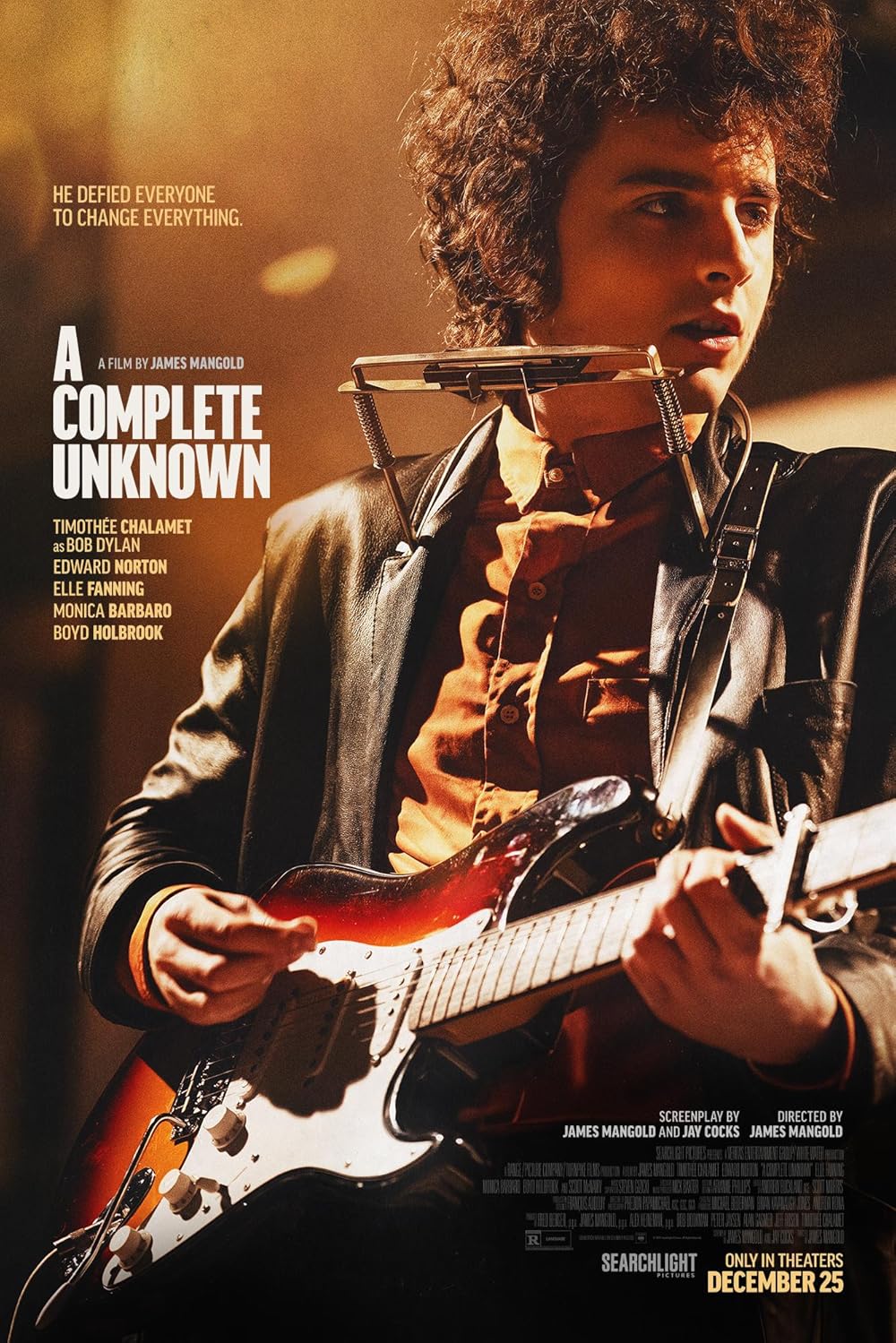Dylan’s ascent to extraordinary stardom was rapid, though not as rapid as it is represented in the film, in which everyone who hears the teenage Dylan perform for the first time is poleaxed by his brilliance. Surely it would’ve been both more interesting and more accurate to show scenes in which, according to David Browne in his recent book Talkin’ Greenwich Village: The Heady Rise and Slow Fall of America’s Bohemian Music Capital, he didn’t go over well at all because of “how jarring Dylan’s voice, guitar playing and early repertoire were” in the folk scene at the time:
[E]arly Dylan gigs found him “awkward and out of place one moment, assured and in command the next,” with a co-manager of the Gaslight [Café] saying he was initially “disastrous” and a Daily News reporter saying he “left the stage to the sound of perhaps one hand clapping.”
Instead, the film shows Dylan arriving in New York City and the next thing you know a Dave Van Ronk–like individual, never named but identifiable if you know what to look for, is already his pal, tipping him off about where to find Dylan’s idol Woody Guthrie. Guthrie and Pete Seeger, both instantly wowed, become Dylan’s mentors, and this is all happening on the same day as far as you can tell. There’s a stripped-down quality to these early scenes, suggesting that other than Seeger and Baez, Dylan is the only titan in the Greenwich Village folk scene, which was most definitely not the case. How about Odetta, Phil Ochs, Josh White, the Clancy Brothers, Joni Mitchell, Peter, Paul and Mary, and so many others appearing at Gerde’s Folk City, the Gaslight Café, Café Wha?, and the Bitter End? Check out the Coen brothers’ Inside Llewyn Davis (2013) for a much stronger sense of the top talent surging through the clubs and cafes, broke young singers and songwriters couch-surfing and playing for peanuts and eyeing each other jealously to see who was going to break into the big time.
Seeger, the ultimate folk music stalwart and social justice activist, is played by Edward Norton, who doesn’t look like the tall, thin, stork-like Seeger but still conveys Seeger’s sunny squareness that had a steel spine running through it. His defiance of the House Un-American Activities Committee authorities blacklisting him is typical in its sweetness, idealism, and implacability — he offered to sing them a folk song, the very thing that brought his Communist Party membership to the fore in the first place. But this is Dylan’s biopic, so that means Seeger gets sacrificed, looking ever more clueless and obsolete as the kid he mentored pulls away to pioneer folk-rock music.
